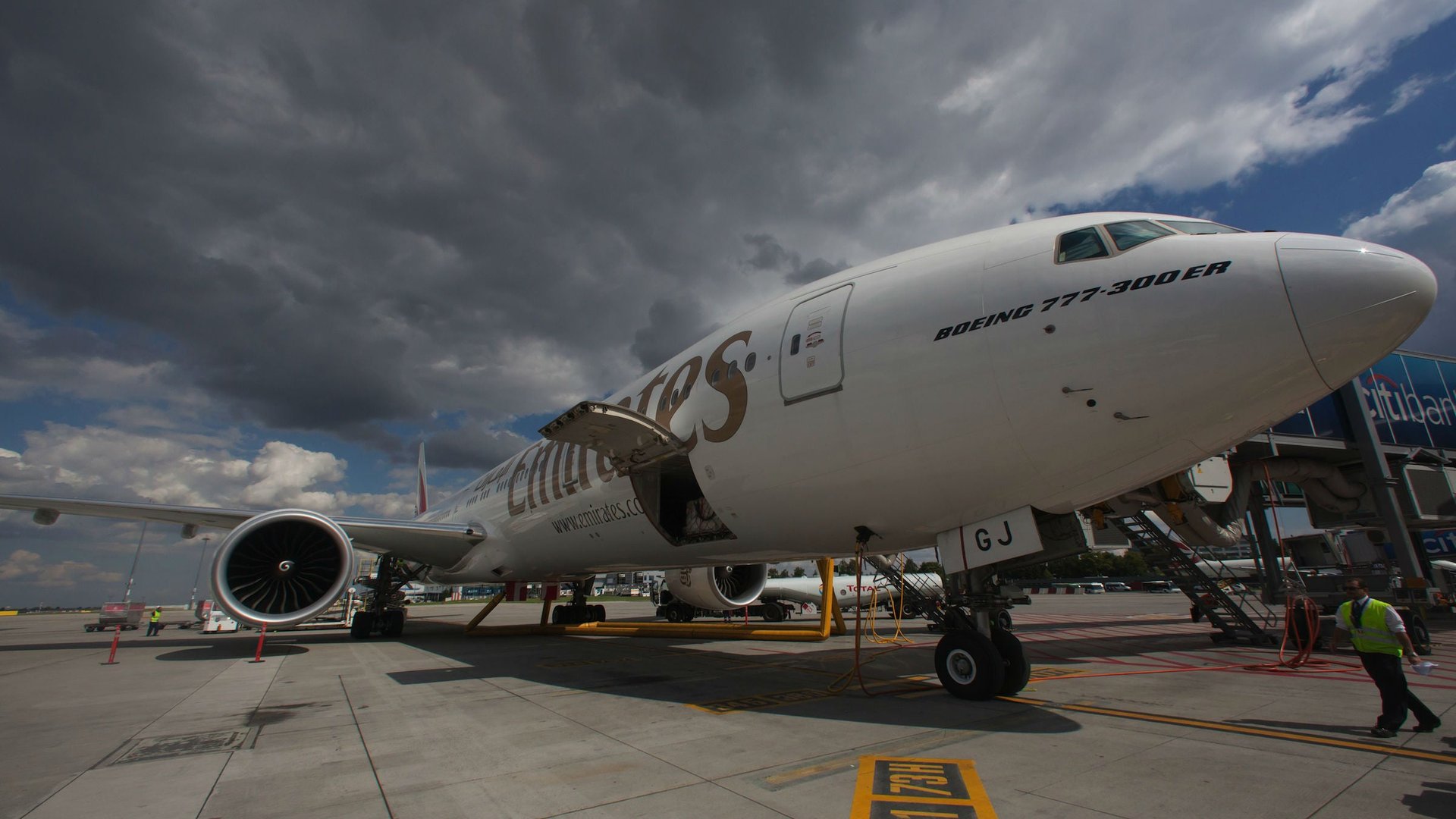Boeing might be about to get the biggest passenger-plane order in its history from Dubai
In further proof that a fight between legacy and upstart regional airlines is heating up, the Dubai-based Emirates Airline is in “advanced negotiations” (paywall) to purchase 100 long-haul passenger jets from Boeing for $30 billion, according to the Financial Times. The purchase—which Emirates has said it would not comment on—would be the largest order Boeing has ever received. (The US aircraft maker’s largest order of passenger jets has so far been 230 737-jets for $22.4 billion, sold to Indonesia’s Lion Air last year.)


In further proof that a fight between legacy and upstart regional airlines is heating up, the Dubai-based Emirates Airline is in “advanced negotiations” (paywall) to purchase 100 long-haul passenger jets from Boeing for $30 billion, according to the Financial Times. The purchase—which Emirates has said it would not comment on—would be the largest order Boeing has ever received. (The US aircraft maker’s largest order of passenger jets has so far been 230 737-jets for $22.4 billion, sold to Indonesia’s Lion Air last year.)
For Emirates, the move would be the latest in its campaign to expand its global service—especially as conflict in the Middle East hits tourism outside of Dubai. In October, the airline launched direct flights from Milan to New York City, as well as between Dubai and a second city in the Philippines aside from Manila. Emirates flies to seven American cities and plans to expand to 15 in three to five years. Already, the airline services a rising number of flights between the US and India.
The purchase would add to Emirate’s already large fleet. The carrier now owns the world’s largest fleet of wide-body passenger jets, the largest fleet of Boeing’s twin-engined 777 jetliner (and it is currently looking at Boeing’s more fuel efficient model, the 777X), as well as the largest fleet of the Airbus 380. By 2020, Emirates hopes to be flying 70 million passengers a year. The carrier hasn’t responded to a request for comment of the order.
More broadly, the rise of Emirates is a reflection that competition in the skies is increasing. Airports in Dubai and elsewhere in the Gulf, like Doha or Abu Dhabi, now are transfer points for 15% of air traffic between Europe and Asia, according to a recent report by Amadeus IT Holding. Only 35% of global airline traffic is via routes that are serviced by just one or two operators, down four percentage points from 2010. Now, over a third of global airline traffic is on routes serviced by four or more airlines, the report said.
The purchase would add to worries of traditional carriers in the US, Europe and Asia who complain that Gulf carriers like Emirates, a state-owned airline, get government support. (Emirates says it doesn’t get any kind of government subsidies.) America’s Airlines Pilots Association argues that the carrier poses unfair competition because it doesn’t have to pay the same tax or deal with the same security and regulatory policies US carriers must follow. Indian airlines have similar complaints. According to one analyst, for the foreseeable future, legacy airlines will “have to fight” to stave off challenges like that of Emirates.